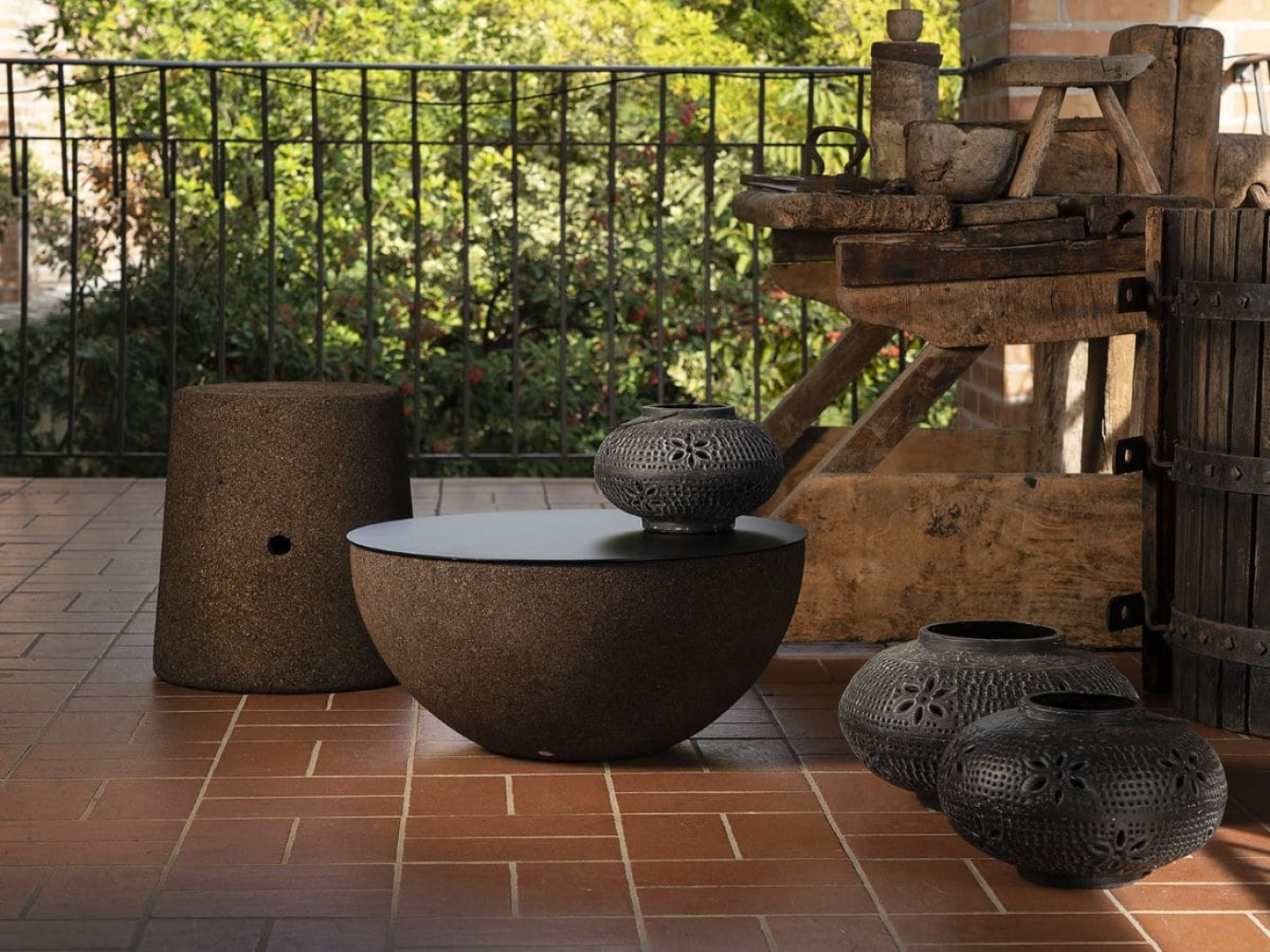
When we open a bottle of wine, often the cork is abandoned on the table and then ends up directly in the unsorted waste bag. As a result, an average of 800 million corks are thrown away every year in Italy. With a small gesture, however, these tiny but valuable pieces of waste can be given a new lease of life, turning them into home accessories and much more. This can help safeguard the forests of Quercus suber, a plant capable of thriving in drought-stricken areas, combating desertification and helping to reduce global warming, as each tonne of cork sequesters up to 73 tonnes of CO₂.
This circular economy approach is made possible by Amorim Cork Italia, the Italian subsidiary of the Portuguese group Amorim. As the largest manufacturer of cork products, by 2024 it covered 45% of the global market in this sector and 28% of the global market for wine closures. With a history spanning more than twenty-five years, the company, based in Conegliano, in the province of Treviso, and associated with Assoimballaggi di FederlegnoArredo, confirmed its position as market leader in Italy in 2024: over 644 million corks were sold, generating a turnover of over €77 million, up 0.2% on the previous year.
Environmental and social sustainability
A leading player in the world of wine, beer and spirits stoppers, this company has turned its products into a symbol of sustainability: from Xpür Qork, a microgranule stopper with vegetable glue, to BeeW, a biodegradable beeswax coating that improves the sensory homogeneity of wines. Suber is instead the furniture line, created from recycled cork, thereby avoiding the emissions that would result from its disposal.
A network of over forty non-profit organisations participating in ETICO, another Amorim Cork Italia project, is responsible for collecting used corks. The partners in this initiative are offered a financial contribution, proportional to the amount of cork collected, to be reinvested in social and environmental projects in the area.
Since 2011, around 320 million corks have been recovered, exceeding 500 tonnes of cork, a natural and 100% recyclable material. In return, over €400,000 has been donated to non-profit organisations, including a spontaneous contribution from Amorim Cork Italia.
How cork collection and recycling work
The collection takes place through special ETICO boxes, distributed to non-profit organisations. These in turn have set up over six thousand collection points throughout the peninsula, placing them at local businesses, supermarkets and companies, but also at events, perhaps to collect the bottle caps from celebratory toasts. These small and large organisations have launched countless initiatives or support each other to raise public awareness about recycling.
The selection is carried out by the associations themselves, through their operators, who check both the nature of the caps, which must be exclusively made of cork, and the presence of metal cages and other elements unrelated to the process. Then, through Amorim, the corks are sent to companies that sort, grind and transform them into cork granules, a raw material used for furniture, but also for green building and sound insulation solutions.
Artisan innovation and expertise
The Suber collection, specifically, is made from CORE, a new composite material obtained from granules combined with natural resins: soft, light and very versatile, it can take on both sinuous shapes and rigorous geometries, while the cork that determines its main mass continues its role as a surprising CO₂ sponge.
To create these entirely Made in Italy furniture products, Amorim has developed a specific industrial process, involving the skills of craftsmen: after the liquid CORE is poured into special moulds, the object remains inside them for about a month before being extracted and carefully polished by hand to give it its specific roughness and opacity.
The cork is also paired with other natural materials, such as steel and glass: the former, with its aesthetic rigour, creates a striking contrast in texture and offers excellent mechanical performance, while the latter, evoking the crystalline transparency of water, contributes to the elegance and visual freshness of the design.
The first Suber collection offered coffee tables, chairs, and wine bottle coolers in various styles, along with different LED lighting systems, umbrella stands, and coat racks, designed primarily for tasting rooms and wine bars. Subsequently, architects Marta Tosone and Jari Franceschetti added new colours and decorations, making the accessories suitable for private homes as well.
“It is a virtuous circle that comes from nature and returns to nature in its best form: functional reuse to create new value, from green building to high-end design furniture,” explains Carlos Veloso dos Santos, CEO of Amorim Cork Italia. “This is how millions of used corks are given new life: figuratively, with supportive solidarity, and literally, because they are destined for recycling.”
Cover: Amorim Cork



